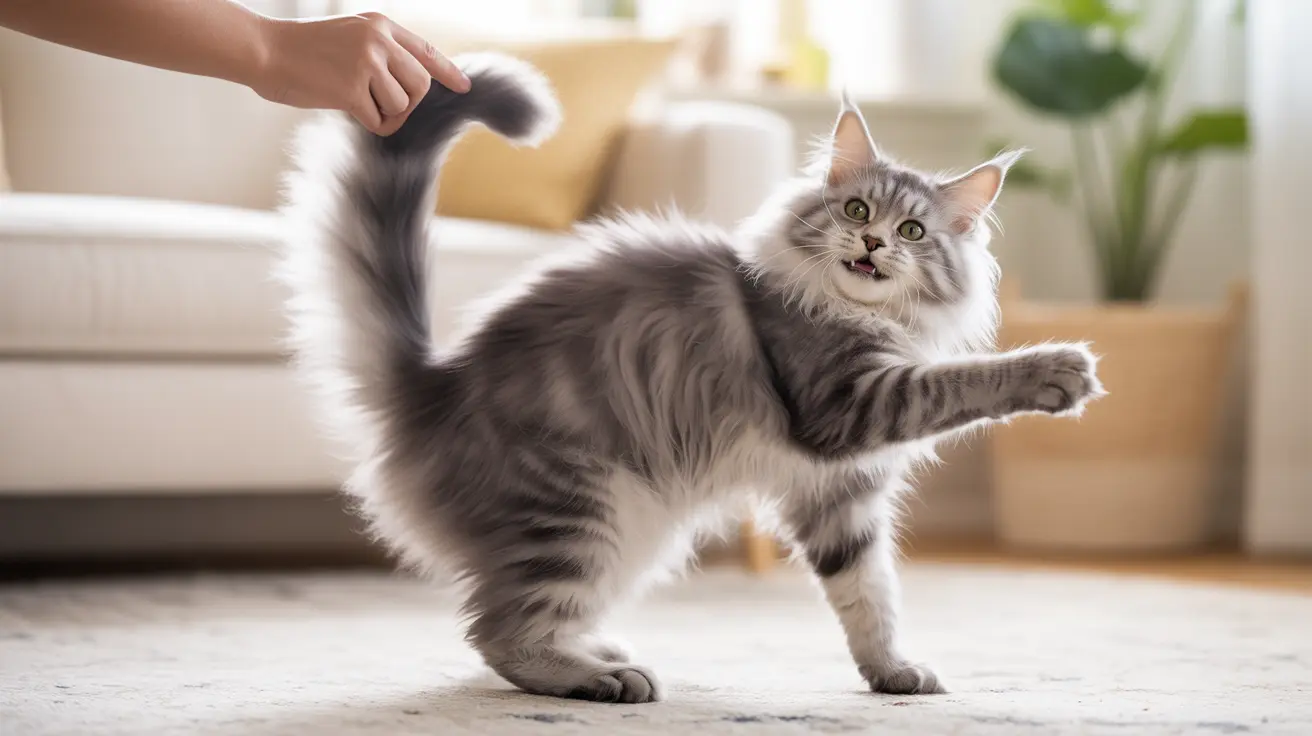Have you ever wondered why your feline friend suddenly raises their hindquarters when you scratch their lower back? This peculiar behavior, often called the "elevator butt," is more than just a quirky cat trait—it's a fascinating display of feline communication, pleasure, and social bonding.
Cats are complex creatures with unique ways of expressing themselves, and their response to specific types of touch reveals a lot about their emotions, instincts, and relationship with their human companions. Let's dive into the intriguing world of why cats love having their butt scratched.
The Science of Feline Pleasure Zones
Cats have specialized nerve clusters at the base of their tail that make this area incredibly sensitive. When you scratch this spot, you're essentially hitting a pleasure center that triggers an automatic, instinctive response. The raised hindquarters are a cat's way of maximizing the enjoyment of that delightful sensation.
Nerve Endings and Sensory Pleasure
The base of a cat's tail contains a high concentration of nerve endings. When stimulated, these nerves send signals of pure pleasure to the cat's brain. By lifting their rear end, cats can actually enhance the intensity of the scratching sensation, bringing those sensitive nerves closer to the surface.
Communication Through Body Language
Far from being a random action, a cat raising its butt is a sophisticated form of non-verbal communication. This gesture is deeply rooted in feline social behavior and serves multiple purposes beyond simple physical pleasure.
Trust and Bonding Signals
When a cat presents its hindquarters to you, it's essentially saying, "I trust you completely." This behavior mimics how cats interact with each other in social groups, where mutual grooming and scent exchange are signs of close relationships. By allowing you to touch this vulnerable area, your cat is demonstrating profound emotional connection.
Instinctual Behaviors Explained
Many of a cat's behaviors have evolutionary origins, and the "elevator butt" is no exception. This action can be traced back to kittenhood, when young cats would raise their rear ends to help their mothers groom them more easily.
Childhood Reflexes in Adult Cats
As cats grow, this juvenile reflex often persists, especially for cats who view their human caregivers as parental figures. It's a lingering behavior that represents comfort, security, and a deep-seated instinct for care and affection.
When Cats Seek Attention
Some cats quickly learn that this behavior gets a reaction. Whether it's extra pets, verbal praise, or simply your attention, cats are intelligent creatures who understand how to communicate their desires effectively.
Learned Behaviors and Responses
If raising their butt consistently results in positive interaction, cats will continue to use this method of communication. It's a clever strategy that works remarkably well for most feline companions.
Frequently Asked Questions
Why do cats raise their butts when you scratch their lower back?
Cats raise their butts due to a combination of nerve pleasure, social communication, and instinctive behaviors rooted in their evolutionary history.
Is it normal for cats to enjoy having their butt scratched or is it a sign of a problem?
This is entirely normal for most cats. However, individual preferences vary, and some cats might find it overstimulating or uncomfortable.
Can scratching a cat's lower back help strengthen our bond?
Absolutely! This type of interaction is a powerful way to build trust and show affection, reinforcing your emotional connection.
Why does my female cat lift her rear end more frequently than usual?
While this can be a normal behavior, increased frequency might indicate hormonal changes or potential mating-related signals.
Should I be concerned if my cat suddenly stops raising its butt during petting?
Sudden changes in behavior could indicate discomfort, pain, or underlying health issues. If this persists, consult with a veterinarian.
Understanding your cat's unique ways of communication can transform your relationship, making every scratch and pet a moment of genuine connection.






